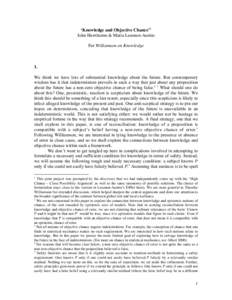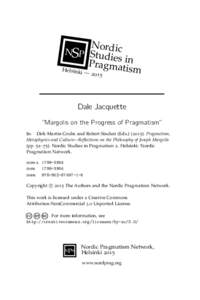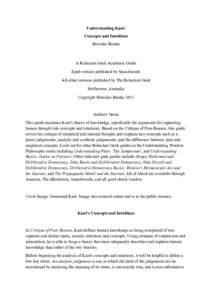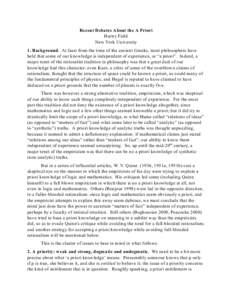<--- Back to Details
| First Page | Document Content | |
|---|---|---|
 Date: 2008-02-04 11:49:34Philosophical logic Modal logic Possibility Justification Dichotomies Epistemology Deductive closure Logical possibility A priori and a posteriori Logic Mathematical logic Analytic philosophy |
Add to Reading List |
 ‘Knowledge and Objective Chance’1 John Hawthorne & Maria Lasonen-Aarnio For Williamson on Knowledge 1. We think we have lots of substantial knowledge about the future. But contemporary
‘Knowledge and Objective Chance’1 John Hawthorne & Maria Lasonen-Aarnio For Williamson on Knowledge 1. We think we have lots of substantial knowledge about the future. But contemporary



![Contingency G. W. Leibniz Copyright ©2010–2015 All rights reserved. Jonathan Bennett [Brackets] enclose editorial explanations. Small ·dots· enclose material that has been added, but can be read as though it were pa Contingency G. W. Leibniz Copyright ©2010–2015 All rights reserved. Jonathan Bennett [Brackets] enclose editorial explanations. Small ·dots· enclose material that has been added, but can be read as though it were pa](https://www.pdfsearch.io/img/6027bcf166a7699a11ede10e87f074e7.jpg)